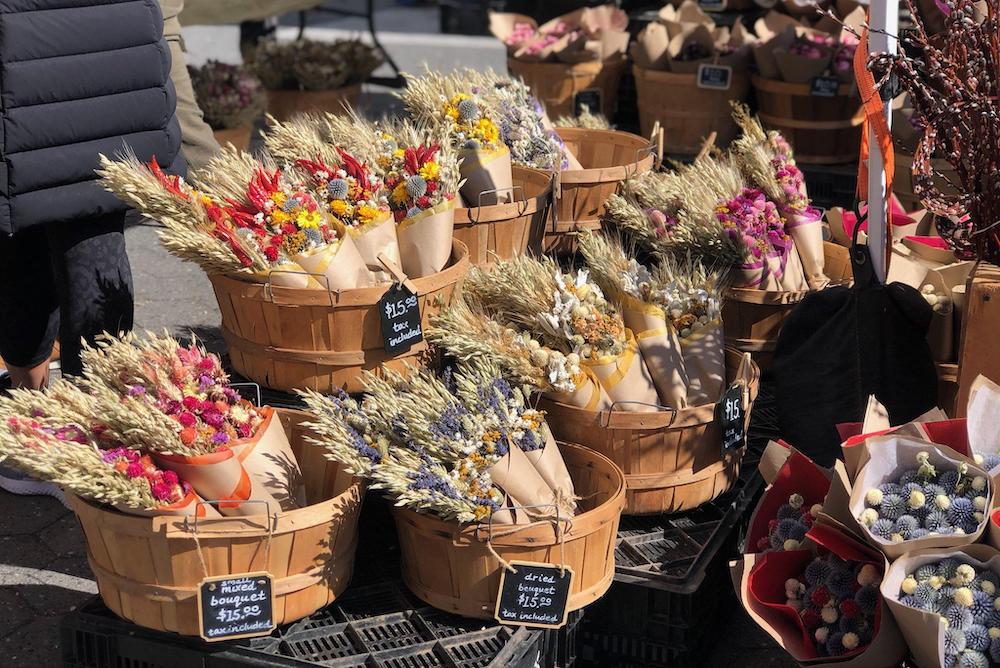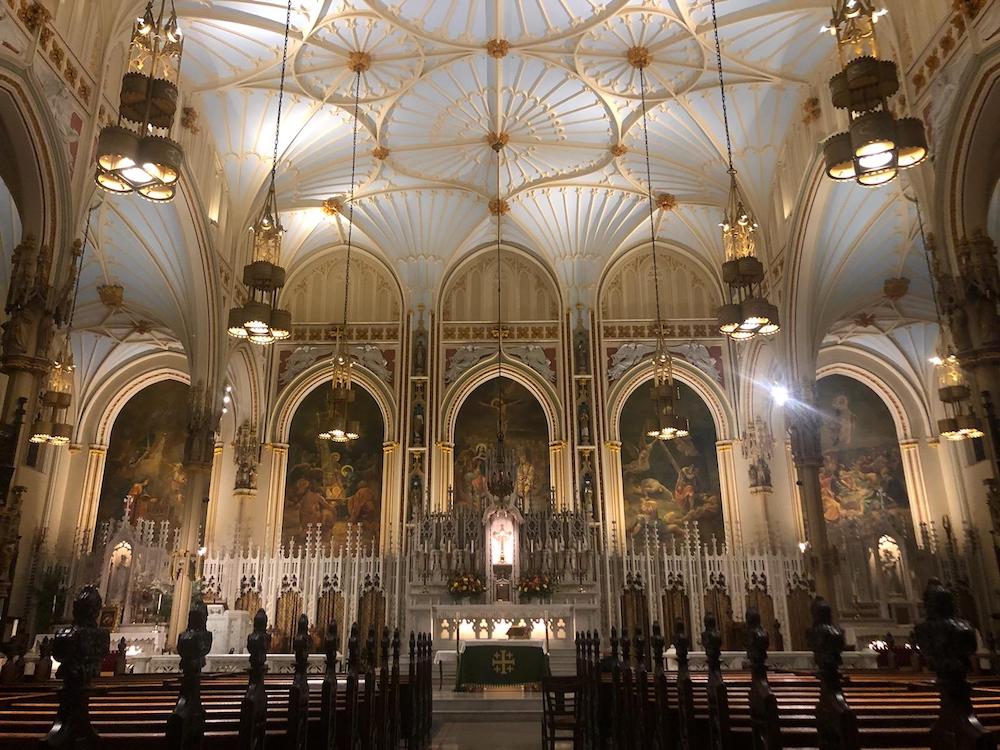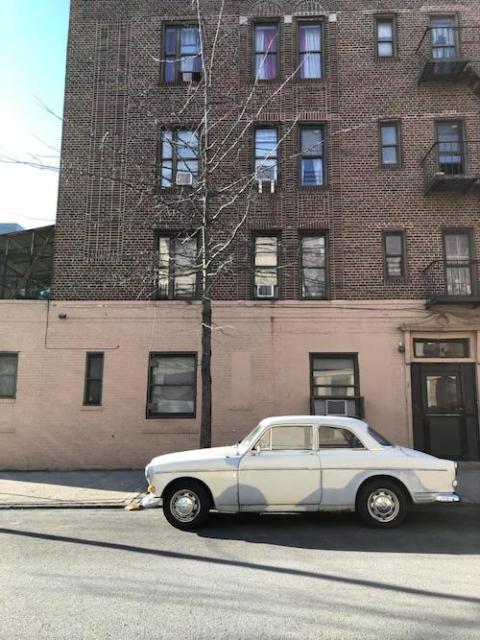
Flowers for sale at the Union Square market (Provided photo)
Editor's note: Notes from the Field includes reports from young people volunteering in ministries of Catholic sisters. A partnership with Catholic Volunteer Network, the project began in the summer of 2015. This is our 11th round of bloggers: Celine Reinoso is a Loretto Volunteer in El Paso, Texas, and Maria Longo is a Notre Dame AmeriCorps volunteer in the Bronx, New York.
I've been on a rollercoaster of emotion over the past week.
Rumors kept circulating the school about the continued spread of the new coronavirus and its impact on our community. Teachers, staff and students alike voiced their concerns and fears about the risk of infection. We bought bottles and bottles of hand sanitizer and wiped down the classroom regularly with disinfectant wipes.
I wasn't quite as mindful as some of the school members, and I was even chastised by several of my second-graders, who scolded me whenever I accidentally touched my face and forcibly squirted their own sanitizer into my hands.
It wasn't so much an "if" our school would close, but a "when." Last Thursday, March 12, our after-school program was let out early, and that Friday, all school events were canceled to allow for a deep-clean of the building. However, by that evening, we received a notice that the school closure would last until March 30. The following day, we were told the opening date had been pushed back to April 20, and even that date was tentative.
At first, I was excited. While the fact that we are experiencing a pandemic is extremely unfortunate, I was thrilled with the idea of being able to serve the community in a different way. Recently, I had fallen into the mindset of working a job rather than serving a mission. Here was an opportunity to engage with my students and their families outside of the school setting, to center myself again and remember who and what I am here for.
Advertisement

Adoration with the Franciscan Friars (Provided photo)
Already, our school and missionary program were raising money and making plans to distribute technology, materials and food items to families in need, calling every single family to check in on them. Our staff held emergency meetings and online calls to discuss what the next few weeks would look like in terms of teaching and protecting those in our care. We spoke of volunteer opportunities in distributing necessities and providing child care while parents were at work. We brainstormed different ways we could continue to teach despite social distancing.
For that one day, I was elated. Then the following evening, all my hopes and dreams were dashed. Our superintendent called for another group meeting and informed us missionaries that we were to leave the city. We were to pack what we needed for the month and return to our family homes as soon as possible. It was not up for discussion.
Once the call ended, my three roommates and I sat together in silence for several minutes. I began to cry, and Shannon began looking up plane tickets for us. A few of the other missionaries in our house came up to our apartment to say their goodbyes, noting that this might be the last time we see each other before we move out in June. I began to cry harder. I didn't want to leave the community. I didn't want to abandon my students. I didn't want to give up the opportunity to tie shoes and hold small hands and share a laugh with them. I had taken for granted so many little things that suddenly meant so much to me. Perhaps it was a little selfish of me, I realized, and I climbed up to the roof of our house that night to look at the skyline one last time.
I could see the Empire State Building, a brilliant torch in the distance. I wondered when I might return to this strange place that had slowly become my home. I had fallen in love with its trash-ridden streets and thick air. I had come to embrace the ramshackle buildings and the terror of weaving through traffic.

A midwinter day in the South Bronx (Provided photo)
I didn't want to leave this life I had grown accustomed to. Here, I had again become captivated with Christ. I found him in the spiritual and material poverty. I found him in the face of the man selling roasted nuts in the square every evening. I found him in my children and our neighbors and the crossing guard who always made a point to smile and nod to me when I passed by. I had shed so many things in the Bronx, layers and layers of things that I identified as myself but really weren't me at all. I had given up running, piano, singing, comfortable living, relationships and so much more. Some of these skins were little, and some of them had wedged themselves deep into my heart. Uprooting them had been painful at times, but it was necessary for the opening of my eyes to a new world. I had learned to love well in the place where God had planted me, and all of a sudden, even that was taken away.
The truth of the matter is this: God's permissive will has allowed for the shifting of nations around the world. I don't understand it, and perhaps I won't for some time. However, here is an opportunity to learn how to love others more deeply and from afar. Now, I have the chance to trust that good will come of this situation, and that, despite all these trials, my relationship with the Lord will be sustained. I have taken on the role of Peter when he stepped out on the water to meet the risen Christ. This is a call to be removed from comfort and regularity. Jesus is calling me to get out of the boat, to accept my helplessness and throw myself entirely into his arms. And with him, we will not fail. We will not falter. We will not fall. "If we are unfaithful, he remains faithful, for he cannot deny himself" (2 Timothy 2:13).
[Maria Longo serves with the Notre Dame AmeriCorps program in the Bronx, New York.]







